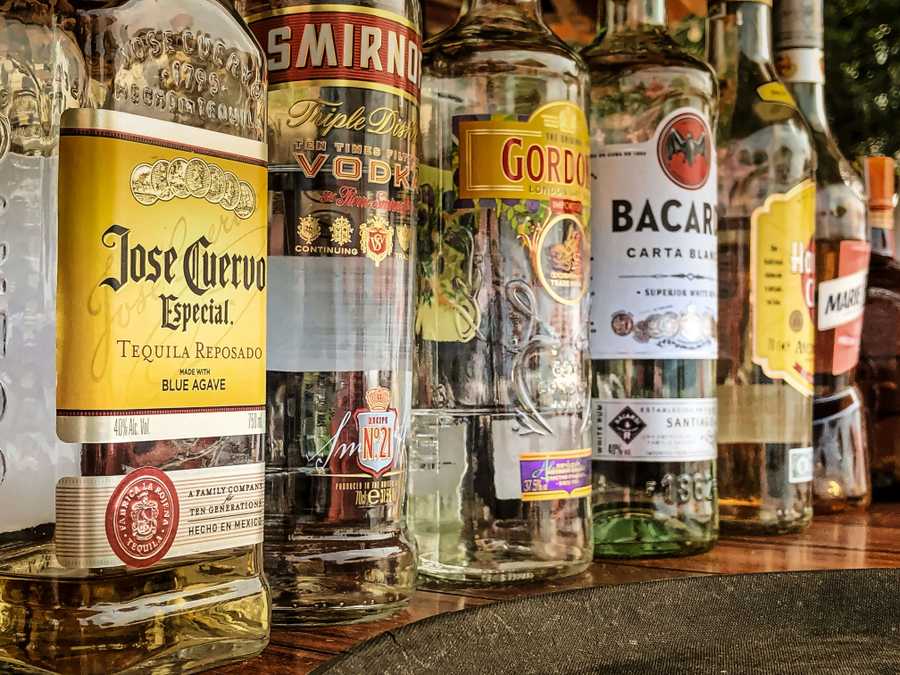How Alcohol Affects the Brain
by Danny Parr, M.S. CandidateNutrition
Alcohol is the most widely used recreational drug worldwide with the predicted proportion of current drinkers increasing to 50% by 2030. [1] In the U.S., 72% of adults report consuming one or more drinks per week. [2]
Alcohol Increases Neuroinflammation
Alcohol use has been associated with cognitive deficits and a 2013 meta-analysis found that cognitive dysfunction may linger for up to 1 year after abstaining from alcohol. [3] The cognitive dysfunction and decline linked to alcohol can be explained by inflammation in the brain. A 2019 systematic review of inflammation and cognition found that alcohol use disorders increased inflammation via alteration of immune signaling, increased inflammatory cytokines, and loss of microglial cells. [4] Alcohol also increases inflammation by disrupting liver and gut function. [4]
Neuroinflammation Central to Alzheimer's Progression
Alzheimer’s disease has two primary pathologies or causes: the abnormal build-up of a protein called beta-amyloid and tangles of a protein called tau in the brain. According to a 2018 review, chronic inflammation has been demonstrated to be associated with neurodegeneration and to exacerbate the causes of Alzheimer's disease. [5] Neuroinflammation is argued to be central to the progression of cognitive decline and Alzheimer’s disease.
Genetics may also play a role in alcohol use and the risk of Alzheimer’s disease. A 2017 review found that the apolipoprotein E (ApoE) allele is the strongest genetic risk factor for Alzheimer’s disease and about 15% to 25% of people have this allele. [6] One study analyzed data from the Vietnam Era Twin Study of Aging and found a significant interaction between alcohol use and ApoE status for general cognition and episodic memory.
Alcohol is a Leading Cause of Cancer
Not only is alcohol implicated in cognitive decline, it has been demonstrated to be one of the leading causes of cancer with an estimated 741,300 of all new cases of cancers in 2020 attributed to alcohol use globally. [7] Alcohol is causally linked due to its ability to cause DNA damage, alter hormones, and increase the absorption of carcinogens. [8] A 2023 systematic review and meta-analysis found that light, moderate, and heavy drinking were each significantly associated with an increased risk of cancer. [9] A large cohort study in Korea with 331,984 Korean adults free of cancer at baseline found that the risk of cancer mortality started to increase at the light drinking level. [10]
How Much Alcohol is Safe?
The MIND diet, specifically created to reduce dementia risk, advocates for moderate alcohol consumption. But in addition to alcohol’s association with cognitive decline and cancer, a 2020 review of epidemiological studies concludes that there is insufficient evidence to support alcohol as protective for dementia or cognitive decline. [11] This year, the U.S. Surgeon General put out an advisory advocating for “long-term quitting or reduced drinking” due to the causal link between alcohol and cancer. [12] Based on the latest evidence, the 4th edition of the European Code against Cancer recommends: "If you drink alcohol of any type, limit your intake. Not drinking alcohol is better for cancer prevention." [13]
Practical Tips for Drinking Less
You don’t have to cut out drinking completely to benefit from reducing your intake and subsequent risk of cognitive decline and cancer.
Here are some practical ways you can reduce your alcohol intake:
- Keep track of how much you drink.
- Try alternatives like mocktails, alcohol-free beers, or seltzers.
- Plan alcohol-free days to give your body a break and reduce your overall intake.
- Find activities that you enjoy that don't involve alcohol.
- Seek support from a friend, family member, or healthcare professional about your desire to reduce alcohol consumption.
Summary
Reducing your alcohol intake can reduce your risk of cognitive decline and cancer and also improve your overall health by reducing inflammation, oxidative stress, and carcinogenic exposure. You can start by keeping track of what you drink, trying alcohol-free alternatives, and finding activities that don’t involve alcohol.
References
- Manthey et al, 2019: https://doi.org/10.1016/S0140-6736(18)32744-2
- National Alcohol Survey, 2020: https://arg.org/news/updated-us-drinking-norms-2020-data/
- Stavro et al, 2013: https://doi.org/10.1111/j.1369-1600.2011.00418.x
- Coppens etl al, 2019: https://doi.org/10.3389/fpsyt.2019.00632
- Kinney et al, 2018: https://doi.org/10.1016/j.trci.2018.06.014
- Hersi M, Irvine B, Gupta P, Gomes J, Birkett N, Krewski D. Risk factors associated with the onset and progression of Alzheimer's disease: A systematic review of the evidence. Neurotoxicology. 2017;61:143-187. doi:10.1016/j.neuro.2017.03.006
- Rumgay et al, 2020: https://doi.org/10.1016/S1470-2045(21)00279-5
- Rumgay et al, 2021: https://doiorg/10.3390/nu13093173
- Jun et al, 2023: https://doi.org/10.4178/epih.e2023092
- Ko et al, 2021: https://doi.org/10.1038/s41598-021-84181-1
- Wiegmann et al, 2020: https://doi.org/10.2147/NDT.S198772
- Office of the Surgeon General, 2025: https://www.hhs.gov/surgeongeneral/reports-and-publications/alcohol-cancer/index.html
- Scoccianti et al, 2016: https://doi.org/10.1016/j.canep.2016.09.011